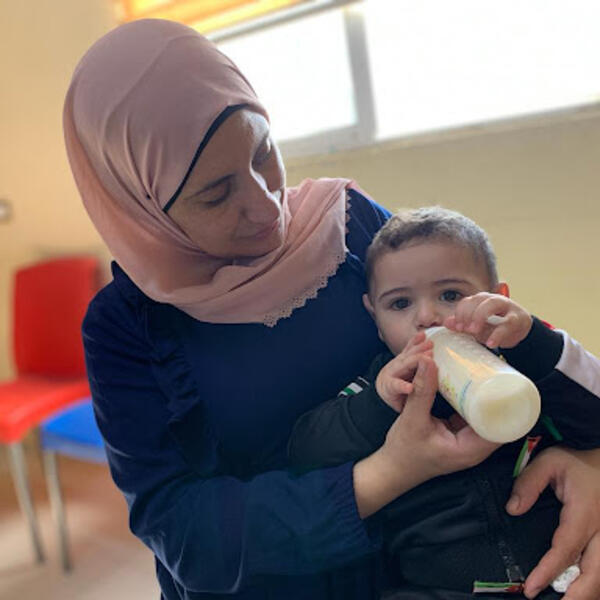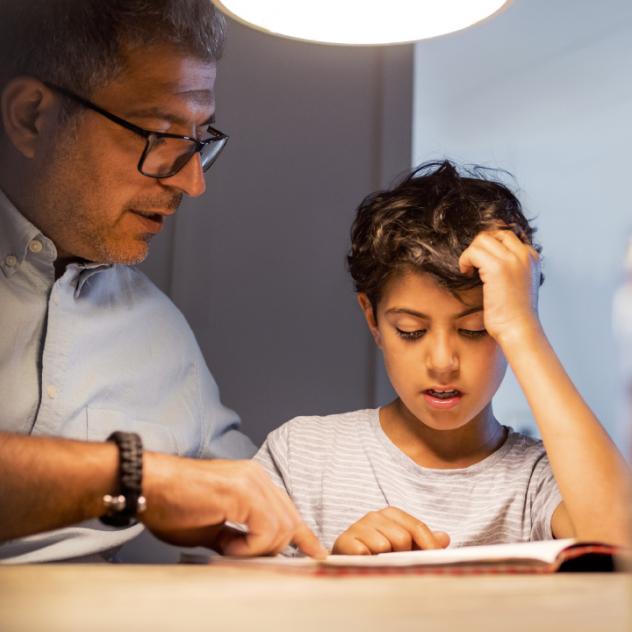Background
90% of of a child’s brain develops in the first five years and despite the fact that the majority of mothers believe that formal pre-primary education is very important, only 20% of mothers of KG1-aged children and 3% of mothers of nursery-aged children in Jordan reported enrolling their children. This means a big proportion of children stay at home, therefore leaving the parents as the main interactor with their child.
Evidence suggests that family involvement is one of the strongest predictors of long-lasting school success. In the early years, parents are instrumental in providing an enabling environment and learning opportunities that set their child up for learning at school. However, the few parents who reported reading books to their children at earlier ages (up to 18 months) were only around 20%.
There is a growing body of evidence that points to the importance of parental engagement when it comes to their children’s education outcomes. This is why the Queen Rania Foundation hopes to find ways to support parents in their role as first teachers through its “Parental Education Program”.
What is the Parent Education Program?
The Parent Education Program equips parents with the knowledge and skill to support their children’s development in the first 5 years of life. The content is based on the Early Years Foundation Stages (EYFS) curriculum and supplemented by Vroom tips. It is delivered to mothers through a course on learning points in 7 learning areas and suggested activities they can do at home to support their children’s development and learning.
QRF has been implementing PEP since 2017 in a variety of different models i.e. face-to-face, blended, virtual.
Currently, PEP is delivered through an 8-week structured course that is offered to mothers through a chatbot on Facebook Messenger.
The program’s main components are:
- The structured course: the delivery of the 8-session training through the chatbot to mothers in Jordan and the region.
- The outreach activities: the collaboration with partnering ministries facilitates holding face-to-face interactive sessions across Jordan to promote the program and recruit mothers from a variety of backgrounds.
- The online platforms: the program content is provided in different formats e.g. Facebook page, Instagram, and the website that include Early Childhood Education content and resources. In addition to building a community.
Impact
As of January 2023
- 78% of mothers who responded to the post-survey reported conducting most of the the new learnt development activities with their children and 43% of them reported reading to children more than 3 times a week compared to 16% at the baseline data point.
- 96% of mothers who have responded to the survey reported that their children enjoy activities and 95% of them reported that those activities are supporting their learning and development.
- 56% of mothers responding to the survey reported an increase in confidence levels.
- 58.5% of mothers responding to the survey reported an increase in self-efficacy levels.
- 65% of mothers who have baseline and end-line records reported improved awareness of what to expect at different age bands.
- A total of 11,604 mothers registered over the years and 4,364 certified.
- A total of 394 mothers attended interactive face-to-face sessions across governorates.
- The majority of mothers join PEP because they are interested in learning about their children and how to encourage desired behaviours
- The majority of mothers who continue practising learning and development activities is because they see their children respond and the benefits of those practices.
- Play and read are two of the most practised activities that mothers highly believe in their importance
- The face to face element was proven effective in enhancing participation and engagement, yet, the process was not very efficient and the benefit did not outweigh the cost.


